#Encyclopædia Britannica
Explore tagged Tumblr posts
Text
i really want to read this ♥️
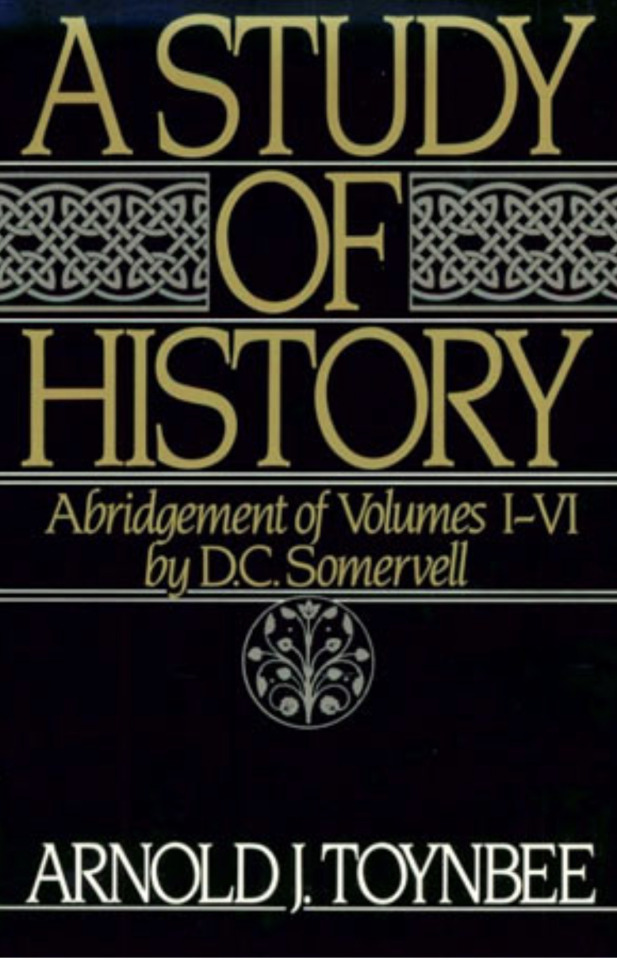
0 notes
Text
I had a dream I was testifying in some court case, and the court really really didn't trust me, so they had six snipers with laser sights trained on me at all the time. It was annoying, I'd step out from behind a pillar and immediately I see laserbeams moving and aiming at my head.
I don't even remember what the case was about. I do recall that as soon as it finished, I went and vandalized the Encyclopædia Britannica by changing the header format for all their articles, so I think that was related.
182 notes
·
View notes
Text

Featuring some of my OCs and their matching shark (according to me). Feel free to comment/offer your own thoughts! References used: Shark Handbook by Dr. Greg Skomal, Encyclopædia Britannica, Wikipedia. Header photo by Steve De Neef (Shortfin Mako shark) Happy Shark Week!

Yandere Yakuza Series:
Daitou: Great White shark. Big, imposing and powerful, yet terribly misunderstood. Really not as dangerous as people would think.
Kazuya: Great Hammerhead shark. Apex predator and a highly respected hunter. Stunning looks. Rarely aggressive unless provoked.
Yandere Yokai Harem:
Kiritsubo: Whale shark. Large yet completely harmless. One of the friendliest sharks.
Murasaki: Grey Reef shark. Solitary hunter, well-known for its 'threat display' when something gets too close. Otherwise tolerant of other animals around it.
Suma: Megalodon shark (extinct). Powerful predator with a bite force up to 10 times stronger than a Great White.
Yuugiri: Common Thresher shark. Beautiful and highly skilled hunter, uses its tail to herd and stun the prey.
Sakaki: Basking shark. A never-ending source of mystery. Displays a lot of bizarre, unexplained behavior. Hides into the depths in winter.
Sekiya: Tasselled wobbegong shark. Funky appearance, shy and reserved. Bottom-dweller.
Other OCs:
Bodyguard (Idol Series): Bull shark. Ferocious predator, aggressive and unpredictable.
Tig (Bad Guy): Oceanic Whitetip shark. Opportunistic and aggressive predator. Solitary. Known to stalk shipwrecks. Described by Jacques Cousteau as "the most dangerous of all sharks".
Daos (The Werewolf): Greenland shark. Ancient creature, walking history. Mysterious and secluded.
Asylum Spider (Asylum Series): Sand Tiger shark. Scary appearance and a skilled swimmer, yet harmless. Can live in captivity, so it is often kept in aquariums.
Zzy (Goat Demon): Megamouth shark. Lives in the depths, probably an annoying yapper. Precious nonetheless.

#feel free to send me shark facts and questions and we can do a shark Sunday#yandere oc#daitou#kazuya#kiritsubo#murasaki#suma#yuugiri#sakaki#sekiya#yandere bodyguard#yandere werewolf#zzy#asylum spider#shark week
163 notes
·
View notes
Text
Feature Fic Fursday
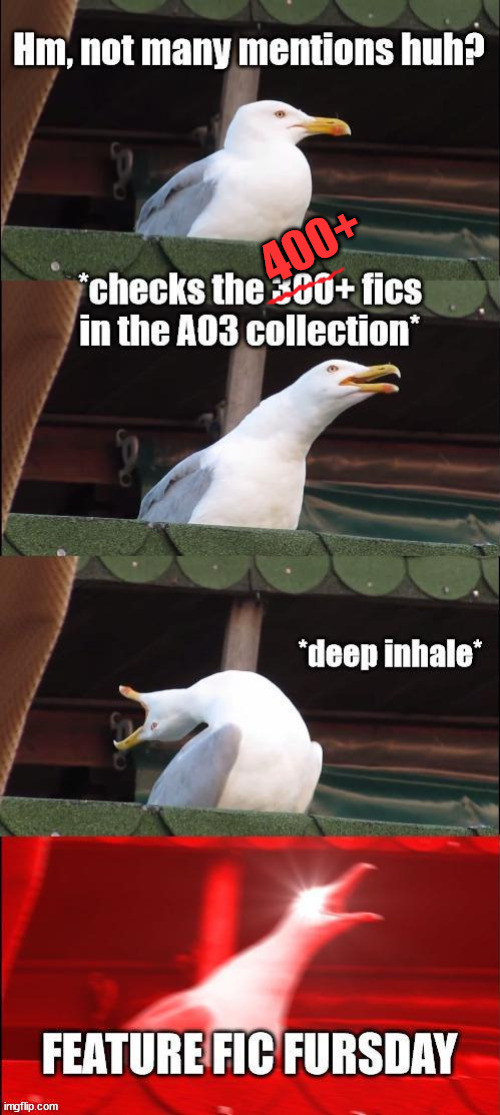
FFF - Feature Fic Fursday!
This is a special day of the week: fic recs Thursday (pronounced à la Française)!
Each week, we will browse the Good Omens After Dark official AO3 collection, choose a tag and promote the fics that are featured in it!
Have a tag idea for the next week? Comment it!
Have other fic recs, or your own fic would qualify for the tag? Reblog and throw in the link!
Tag of the week: Clothed Sex
Lavender Isn’t Scary by redheadedjapanese
Rating: Explicit
Genres: Smut
Word count: 5,780 words
Chapter count: one-shot
Summary: In 1953, freshly reunited after their 1941 adventure, Aziraphale and Crowley have returned to their Arrangement of flipping a coin to handle combined blessings and temptations. Aziraphale is a bit rusty with the latter, especially with matters of lust, and one such assignment has arisen with an American target - at the height of the U.S. moral panic known as the Lavender Scare. Clearly, his work is cut out for him, but Crowley is here to assist because that’s what…friends are for.
Surviving Strawberries by DoonaRose
Rating: Explicit
Genres: Smut
Word count: 1,933 words
Chapter count: one-shot
Summary: It’s bad enough that Aziraphale has dragged Crowley out in public to ‘Do something’ on Halloween – Crowley would have been much happier staying in the bookshop. What’s worse is that Aziraphale has chosen tonight to ‘Explore some new activities’, which meant visiting a drag club and forcing Crowley into a ridiculous pair of plastic red horns, and a long red devil’s tail looped into his belt, trailing behind him for all to see. Then Aziraphale orders strawberries and rather deliberately continues to torture Crowley - in public!
Pine and Surfeit by CelestialThighMuffs (FlyingBi)
Rating: Explicit
Genres: Smut
Word count: 2,423 words
Chapter count: one-shot
Summary: “My mouth?” Crowley hissed, flipping them over so he could lean down and nibble on his ear. “Oh angel, that was only the appetiser. Wait until you see what the main course is.” He slithered his tongue over Aziraphale’s neck, independently wiggling the forked tips as they dragged over stubbled skin. Crowley mixes up his days and he's late for dinner. He's in the middle of pampering himself when Aziraphale shows up at the flat to check on him and insists on helping...until they can't help themselves. Loosely inspired by this scene between Bond and Moneypenny in Skyfall.
Indulgences of the Flesh by Pixiefairy15
Gift for RoyalBlep
Rating: Explicit
Genres: Smut
Word count: 3,725 words
Chapter count: one-shot
Summary: Aziraphale’s specialty was indulgence; if you looked in the Encyclopædia Britannica, you might as well see a little picture of the angel, pink cheeked and well-stuffed. Complete and utter indulgence was what Crowley had been aiming to elicit in his angel when he made the decision that this year, they would be celebrating Valentine’s Day. Crowley gifts Aziraphale with roses and chocolates, and receives a proper reward for his devotion.
Conflict Resolution by ElysiumLeo (The_Nerd_Alert)
Gift for WingsofOpal
Rating: Explicit
Genres: Smut
Word count: 5,767 words
Chapter count: one-shot
Summary: After a seemingly senseless argument, Crowley has stormed out of the bookshop to go cool off. Aziraphale should be irritated with him; he didn't even know what the argument was about! But knowing his darling, Aziraphale simply decides to wait until his demon is ready to return, knowing that when he does, they will have the chance to make amends with each other, like they always do. He just didn't anticipate that their latest attempt at an apology would be so... intimate.
(or, The one where the Ineffables discover they have a SERIOUS cockwarming kink, and have a great time experimenting with it.)
Dough by CemeteryAngel725
Gift for Lullanda
Rating: Explicit
Genres: Smut
Word count: 673 words
Chapter count: one-shot
Summary: Crowley and Aziraphale argue about how to knead pizza dough. Aziraphale shows Crowley how to do it properly.
That’s all, folks!!
#good omens after dark#goad#good omens#good omens fanfic#writers of after dark#writers guild presents#fic rec Thursday#fanfic rec
226 notes
·
View notes
Text


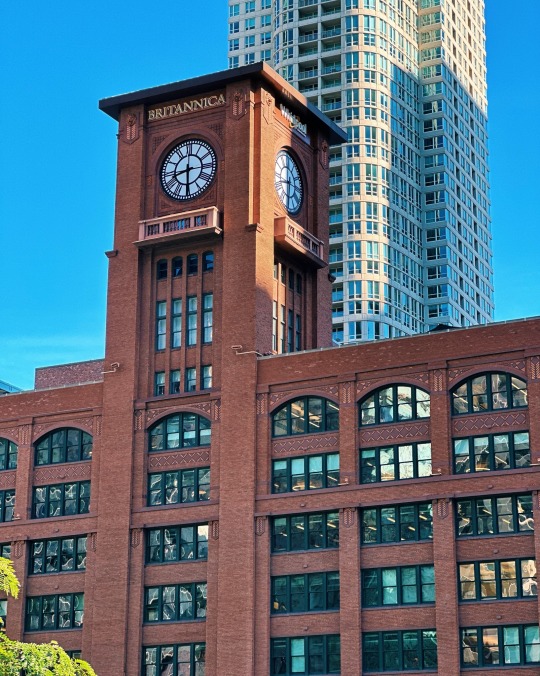
I am happy to announce that I have a job! I'm officially a copyeditor at the prestigious Encyclopædia Britannica. It's a joy to be in the Words business, but honestly it's an even bigger relief. The job market is hell for real, and these past few months have been really tough, both because of the search and outside of it. It's so nice to be able to celebrate. (And to have employer-sponsored health insurance.)
86 notes
·
View notes
Text
I think i would enjoy the Olympics a lot more if they were more practicality themed. I really like the practical theming of the biathlon:
According to Encyclopædia Britannica, the biathlon "is rooted in the skiing traditions of Scandinavia, where early inhabitants revered the Norse god Ullr as both the ski god and the hunting god." [Doubt.jpg lol] In modern times, the activity that developed into this sport was an exercise for Norwegians as alternative training for the military. Norwegian skiing regiments organized military skiing contests in the 18th century, divided into four classes: shooting at mark while skiing at top speed, downhill race among trees, downhill race on big hills without falling, and a long race on flat ground while carrying a rifle and military pack. In modern terminology, these military contests included downhill, slalom, biathlon, and cross-country skiing. One of the world's first known ski clubs, Trysil Skytte- og Skiløberforening (the Trysil Rifle and Ski Club), was formed in Norway in 1861 to promote national defense at the local level.
This is a great start but every event should be like this. Long distance running is obviously practical. Uhhh rowing ofc. Pole vaulting for siege warfare. High jump would be better if it was about how high a bar you could grab onto or something. So you could pretend you were like. Getting into a secret place or something. You understand. Watching the Olympics should feel like testing candidates for a Crack team at some sort of strange task
53 notes
·
View notes
Text
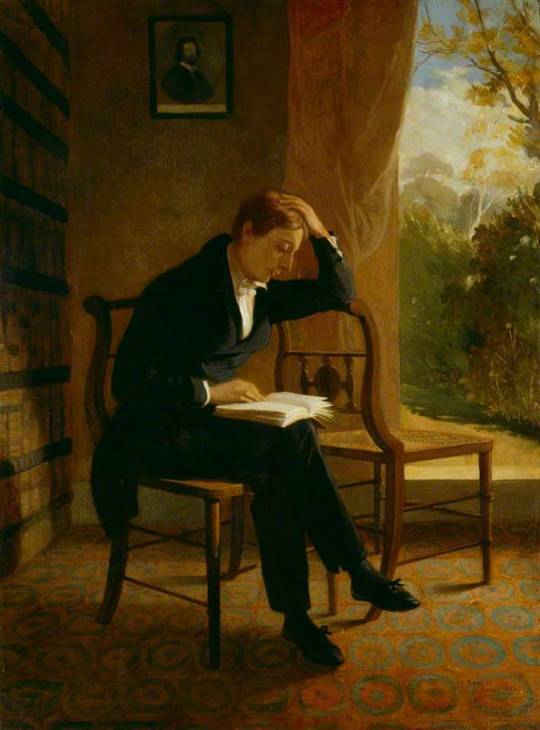
Portrait of John Keats
Artist: Joseph Severn (British, 1793–1879)
Date: 1821-1823
Medium: Oil on Canvas
Collection: National Portrait Gallery, London
John Keats
John Keats (31 October 1795 – 23 February 1821) was an English poet of the second generation of Romantic poets, along with Lord Byron and Percy Bysshe Shelley. His poems had been in publication for less than four years when he died of tuberculosis at the age of 25. They were indifferently received in his lifetime, but his fame grew rapidly after his death. By the end of the century, he was placed in the canon of English literature, strongly influencing many writers of the Pre-Raphaelite Brotherhood; the Encyclopædia Britannica of 1888 called one ode "one of the final masterpieces".
Keats had a style "heavily loaded with sensualities", notably in the series of odes. Typically of the Romantics, he accentuated extreme emotion through natural imagery. Today his poems and letters remain among the most popular and analysed in English literature – in particular "Ode to a Nightingale", "Ode on a Grecian Urn", "Sleep and Poetry" and the sonnet "On First Looking into Chapman's Homer". Jorge Luis Borges named his first time reading Keats an experience he felt all his life.
This portrait Severn, who had nursed his friend in Rome, described the circumstances recreated in this posthumous portrait: 'This was the time he first fell ill & had written the Ode to the Nightingale on the morning of my visit to Hampstead. I found him sitting with the two chairs as I have painted him & was struck with the first real symptoms of sadness in Keats so finely expressed in that poem.'
#portrait#poet#man#seated#full lenght#chairs#window#landscape#indoors#history#19th century#joseph severn#british painter#european art#british culture#john keats#historical#literature
29 notes
·
View notes
Text
THIS DAY IN GAY HISTORY
based on: The White Crane Institute's 'Gay Wisdom', Gay Birthdays, Gay For Today, Famous GLBT, glbt-Gay Encylopedia, Today in Gay History, Wikipedia, and more … January 11


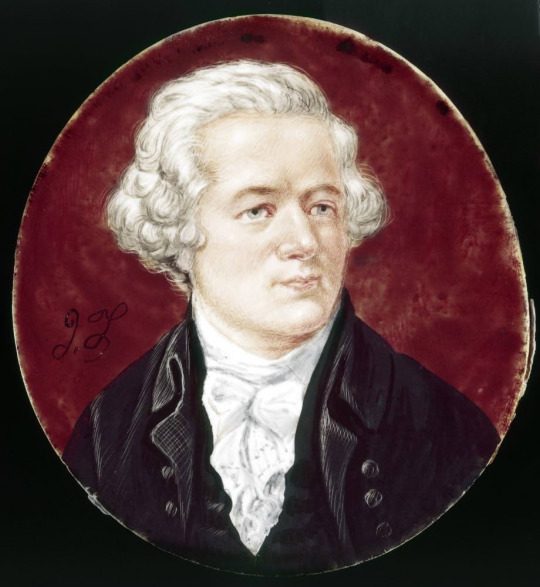
1755 – Alexander Hamilton, 1st United States Secretary of the Treasury (d.1804); One had to wonder what the current occupants of the White House would think if they knew of the ruckus caused a couple of centuries ago by Alexander Hamilton and George Washington, the American patriots who became the first secretary of the treasury and president, respectively. George, whom everyone knows had no children of his own, surrounded himself with a circle of young male revolutionaries who he called his "family." Among his favorites were John Laurens, who once fought a duel to defend George's honor sullied by some cad now lost to history; and Alexander Hamilton. George was thought by his enemies to be a bit soft on the boys and was suspected over being overly fond of young Hamilton in particular.
While in Washington's service Hamilton befriended a group of other young officers, with one of whom, John Laurens of South Carolina, he had a particularly close relationship. When the two were apart on separate assignments, they exchanged affectionate letters. In September 1779, gently chiding Laurens for not corresponding as often as he would have liked, Hamilton wrote, "like a jealous lover, when I thought you slighted my caresses, my affection was alarmed and my vanity piqued."
Between 1779 and 1782, Hamilton and Laurens exchanged a series of love letters, reprinted in Jonathan Katz's Gay American History, in which Laurens addressed Hamilton as "'My Dear' and offered flowery protestations of undying affection, to which Hamilton responded with the touching declaration: "'I love you'." To this day the letters are explained away on the grounds that 18th century men "were classical scholars whose thoughts and actions were colored by the grandeur of antiquity."
Despite the prestige of his appointment on Washington's staff, Hamilton wished to serve in combat like—and perhaps with—his friend Laurens. Using the pretext of a minor disagreement with the general, Hamilton requested and received a transfer in February 1781. The incident left no hard feelings on either side.
Hamilton and Laurens participated in several military campaigns together later that year but were again separated on August 15, 1782, when Hamilton wrote to his friend, addressing him as "My Dear Laurens." Looking beyond the successful conclusion of the war, Hamilton suggested that both of them should be members of the congress of the new country. "We have fought side by side to make America free, let us hand in hand struggle to make her happy," he wrote in a letter ending, "Yours forever."
It is doubtful that Laurens ever read this letter, for he was killed in a skirmish on August 27. Upon hearing of his friend's death from Major General Nathanael Greene, Hamilton wrote back that he felt "the deepest affliction at the news," adding, "I feel the loss of a friend I truly and most tenderly loved."

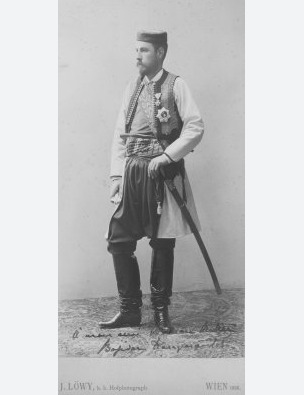
Файл:Bojidar Karageorgevitch — Википедия
1868 – Prince Bojidar Karageorgevitch (d.1908), Serbian artist and writer on art, was a member of the Serbian House of Karaorđević. He was a world traveller. He gave singing and drawing lessons and later earned his living as an art critic and translator. He was a contributor to the Encyclopædia Britannica, Figaro, La Revue de Paris, Revue des Revues, Magazine of Art, and other publications.
Prince Bojidar lived in France for most of his life as this family were in exile. Bojidar travelled a lot and went on a number of trips around the world. He served in the French Army and fought in the French campaign at Tonking and was decorated with the Cross of the Legion of Honour. To earn a living he gave singing and drawing lessons before becoming a translator and journalist
During one of his trips abroad, he travelled extensively around India, visiting thirty eight cities. He wrote a book about his experiences called Enchanted India in which he offered an account of the Indian people, their religious rites, and other ceremonies.
He was drawn to the cabarets of Montmarte, the haunt of artists, writers, poets, philosophers. It was there he met and befriended French stage actress Sarah Bernhardt, pioneer of modern dance Loïe Fuller, French poet, novelist and noted orientalist Judith Gautier, Suzanne Meyer-Zundel, Austrian composer Hugo Wolf, painter and illustrator Henri de Toulouse-Lautrec, and founder of the Ballets Russes Sergei Diaghilev.
His lover was painter Jules Bastien-Lepage, fourteen years his senior, who predeceased him when Prince Bojidar was only 22 years old. The artist, long ailing, had tried in vain to re-establish his health in Algiers. He died in Paris in 1884. Prince Bojidar, was with him at the end and wrote,
"At last he was unable to work anymore; and he died on the 10th of December, 1884, breathing his last in my arms. At his grave's head his mother and brother lovingly planted an apple-tree, which every spring showers down its wealth of pearly petals over the last resting-place of the great master whose loss we all mourn."


1950 – Rick Bébout is best known for his role in The Body Politic collective in the 1970s and '80s, and for his writings then and since on gay life in Toronto.
One of thousands who had fled to Canada from the United States during the Vietnam War, in 1977 Bébout joined a small group of Toronto lesbian and gay activists who were publishing The Body Politic, a 'gay liberation journal' that had soared to prominence both in Canada and abroad.
Particularly interested in design, he brought the resource-poor publication to an astonishing level of graphic sophistication, while also contributing to its unique voice by writing in its pages.
But his interests extended well beyond sexual politics. Like many other refugees who have settled in Toronto, he was passionate about the city that had embraced him, editing in 1972 The Open Gate: Toronto Union Station, a book that helped prevent the destruction of the iconic building.
Despite his interest in mass politics, he was intensely private and writing was the medium in which he conducted much of his life, particularly in his later years. Notably, he carried on a decades-long correspondence with novelist Jane Rule. (Their letters are being prepared for publication by a US scholar.)
Living with HIV since the mid-1980s, Rick suffered an apparent stroke on June 4, 2009, and died on June 10, 2009, of HIV-related illnesses.


1962 – Today's the birthday of Welsh politician Chris Bryant. Born in Cardiff, Wales. He studied English at Oxford University and theology at Rippon College, Cuddesdon.
Bryant is openly gay, but he was ridiculed in the press when he was discovered to have a Gaydar profile featuring pictures of him wearing only underpants, whilst an MP. In an interview with Attitiude magazine he later described the incident as 'very, very, very, very unpleasant ... I didn't sleep much for about three months.'

Chris Bryant's "Gaydar" picture.
He later appeared looking very buff in swimming trunks at a parlimanetary swimming fundraiser.
In early 2010 Bryant 'married' his partner Jared Cranney in the first civil partnership to be held in the Houses of Parliament.


1972 – Chad Donovan is an American performer and director of gay pornographic films. He has won numerous awards as a performer and director, and is a member of the GayVN Awards Hall of Fame and the Grabby Awards Hall of Fame.
Donovan was born into a Southern Baptist family. His rigid religious background and sexual precocity led to experimentation at an early age. "My first experience with a guy was about eight, just playing around and fingering buttholes. We probably didn't even get hard." Donovan's large endowment prompted teasing from his classmates as he reached puberty. "Through high school I had a difficult time because I had to change clothes for gym and stuff. I nearly failed gym class because I didn't want to change clothes. I got made fun of. Plus, not to mention, I hit puberty at ten. So all these little boys were bald as a peacock and here I am, full out baby's arm holding an apple."
Donovan was introduced to the gay pornographic industry by performers Chase Hunter and Tony DeAngelo. They worked as strippers at a 1470 West, a gay bar in Dayton, Ohio where Donovan was bartending. "We were kind of fucking around, having threeways occasionally. They took pictures of me, sent pictures all around," he recalls. Gay adult studios Catalina Video and Falcon Studios showed interest, and Donovan chose to work for Falcon. He was eighteen years old.
Donovan earned a $2,000 scene rate for his first movie. "When you're a kid living in Ohio, that's a lot of money. And a trip to San Francisco for three days. I did the one scene and two photo layouts. It was fantastic. What more could you ask for?" He filmed the scene with Hunter Scott and Anthony Moore. The scene was released by Falcon in 1994 in the film "Workin' Stiff." Donovan went on to film roughly 50 titles as a performer over the next decade.
In 2001, Bob East of Men of Odyssey broached the idea of directing. "He asked me if I'd be interested in directing. He said I seemed to have a good knack for finding talent, I've been in the industry long enough, why don't I try putting a movie together? So I did." That film was titled "Movin' On," and it was during production that he met and began a relationship with cast member Antonio Madiera, which continues to this day. "I had no intention of getting a boyfriend out of it. I hired the kid, I really liked the way he looked, he performed like a champ, and every time I looked down—when I wasn't even shooting him, I'd be shooting other boys in a scene—he'd be looking up at me with these puppydog eyes. I just couldn't resist."
Donovan's final onscreen sexual performances (as of December 2007) were in 2004. One of those films, "Studs 'N Pups" for MSR Videos, was the first time he and boyfriend Madiera performed together. Madiera continues to act occasionally, usually in films that Donovan directs. In 2007, Donovan helmed Basic Plumbing 3 for Falcon Studios; the film starred Chase Hunter and brought them back together 16 years after Hunter introduced Donovan to the industry. Although essentially retired as a sexual performer, Donovan occasionally appears in nonsexual roles. His early roles remain in circulation as they are continually repackaged into compilation tapes.

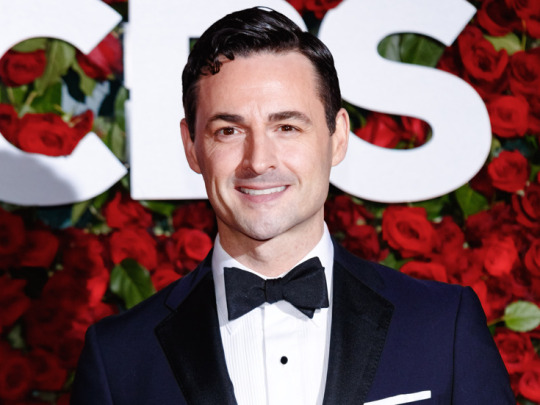
1974 – Max von Essen is an American stage and screen actor, and vocalist.
Raised on Long Island, von Essen is a graduate of South Side High School in Rockville Centre, New York. He attended the University of North Carolina at Chapel Hill, and after graduation toured with Liza Minnelli. He is a member of the Von Essen family, who are part of the German and Swedish nobility. A son of Rita and Thomas Von Essen, who was the New York City Fire Commissioner during the 9/11 terrorist attacks on the World Trade Center, he is the youngest of four children. He is openly gay.
He toured Europe in West Side Story and was a cast member of the U.S. national tour of Chicago. He made his Broadway debut in Jesus Christ Superstar in 2000 as Disciple and Jesus of Nazareth understudy. He appeared in Les Misérables on Broadway as the replacement for Fauchelevent and other roles, and starred in Dance of the Vampires alongside Michael Crawford in 2002. He played the role of student revolutionary leader Enjolras (replacement) in the Les Misérables Broadway revival in 2006 at the Broadhurst Theater.
In 2006, he was a soloist at the biggest Andrew Lloyd Webber musical gala to date, held in Tallinn, Estonia. He performed in the national tour of Xanadu as "Sonny" in 2008[8] and in the Roundabout Theater Company Off-Broadway production of Maury Yeston's Death Takes a Holiday at the Laura Pels Theatre in 2011. In 2015, von Essen played the role of Parisian aristocrat Henri in the Broadway production of An American in Paris, for which he received a Tony Award for Best Featured Actor in a Musical nomination.
Max von Essen is now a star of the off-Broadway play “Yours Unfaithfully,” and lives with his partner, Daniel Rowan, in a Hell’s Kitchen duplex.


Dylan Rice at the OUT Music Awards
1976 – Today is also the birthday of American singer Dylan Rice. He graduated from Northwestern University in 1998 (where he studied poetry) and now lives in Chicago. In 2004 he released an album called Wandering Eyes.
In July 2006, Dylan, who is openly gay, performed his stadium-rock anthem "The Faces of Victory" for 20,000 people at the Gay Games Closing Ceremonies at Wrigley Field in Chicago, joined onstage by Styx bassist Chuck Panozzo, and backed by a chorus of Chicago LGBT rockers. Written especially for the Gay Games, the song was also recorded in the studio with Panozzo, released as a single, and was highlighted in the official Gay Games VII commemorative DVD in December 2006.
For more information about Rice, visit his website at www.dylanrice.com Under the "Music" tab you can even download some of his songs.

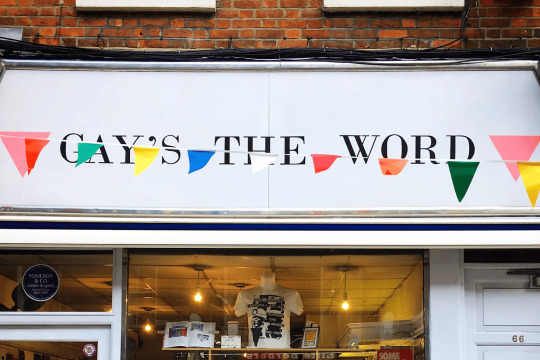
1984 – The Wall Street Journal allows staff writers to now use the word "gay" as a synonym for "homosexual" in article and headlines.

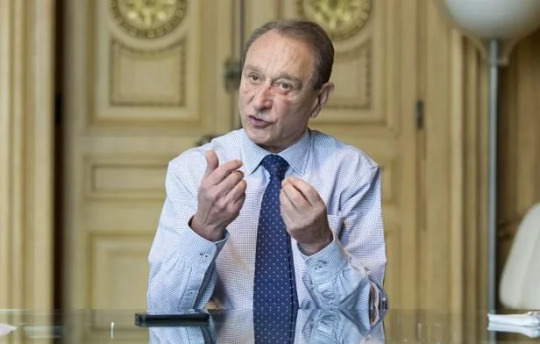
2008 – It was reported on this date that the Socialist mayor of Paris, Bertrand Delanoë, had been given increased police protection after US security services informed their French counterparts that he might be attacked by terrorists. While monitoring internet traffic related to Al-Qaeda the CIA discovered that Delanoë was listed as a target. As mayor of France's biggest city he is the most prominent gay politician in the country.


16 notes
·
View notes
Text
France, America and the Love for 'Liberté'
Warning: wall of text. This post is nearly 5000 words long.
TL; DR: France contributed to the formation of America. Why did Himaruya design France like that? Some relevant information about the relationship between France - UK and France - US.
Part 1: The Love for 'Liberté'
I've talked about this a lot, but now I'll summarize it a bit. Basically, it's not without reason that I assume that France played a huge role in giving birth to America.
The reason the French supported America in the war for independence from Britain included 2 reasons:
1. Competition with England. This is too obvious.
2. The French Enlightenment caused the French to risk their lives in North America. Their help to Americans is to realize their dreams and ideals of liberty and republican government. (Museum of the American Revolution, unknown)
Helping America is not only the French monarchy, but also the French people. The Americans' determination to make a revolution created a great wave throughout France (Office of the Historian, unknown). It can be said that America was born from the French Enlightenment movement. Americans were directly taught by the French about ideas about human equality. At the heart of every American uprising is Enlightenment thought. In addition, precisely because Enlightenment ideas were transmitted directly from France to America, it was from America that this idea was spread across the Atlantic (Marks, 2018).
We can mention some typical French figures who participated in the American Revolution and some Americans who were influenced by France. The most famous Frenchman of the American Revolution was the Marquis de Lafayette. He joined this war at the age of 19, with the belief that he would bring glory and justice to America, even rising to the rank of major general in American army (Shaw, unknown). Pierre Charles L'Enfant, the designer of Washington DC, was French (Museum of the American Revolution, unknown). Thomas Jefferson, America's founding father, a native of England, was a true francophile. He was one of the first US ambassadors extraordinary and plenipotentiary to France, and is extremely passionate about the French lifestyle (The French Life, unknown). Benjamin Franklin was the main factor why the French were inspired and fervently supported the American Revolution (Office of the Historian, unknown). “Give me liberty or give me death!”, Patrick Henry's declaration at the Second Virginia Convention (1775) was influenced by the saying "Man is born free and everywhere he is in chains.” by French writer Jean-Jacques Rousseau (Mcgee, 2020)
The American Revolution is called the Second Hundred Years' War between France and England by some historians (Shaw, unknown). From 1775 to 1777, France secretly supported America by providing weapons and money to America (The Editors of Encyclopædia Britannica, unknown). When the Franco-American Alliance was signed in 1778, France openly supported the United States, and "brought its full military might against Britain" (Shaw, unknown). In terms of the treaty, “peace could be arrived at only by mutual French and U.S. consent" (The Editors of Encyclopædia Britannica, unknown). The British attempted to divide the French-American alliance and failed, and only when Britain and France resolved their differences could the Americans sign the treaty of Paris (Mcgee, 2020). French support played an important role in the British surrender at the Battle of Yorktown in 1781 (Office of the Historian, unknown). In the Siege of Yorktown painting hung in the US Capitol, the Bourbon flag and the American flag are placed parallel to each other. Admiring the French was even considered “a patriotic duty” for American colonists (Kaplan, 1956, p.34).
In order for America to be independent, the French army at that time gathered troops to fight the British army in colonies around the world. Because Britain had to spread human resources and resources across battles in other colonies, America became a secondary problem, meaning that if Britain did not let go of the 13 colonies in North America, the entire British empire would collapse. (Shaw, unknown). In 1776, France transferred to the United States about 300,000 pounds of gunpowder, 30,000 muskets, 3,000 tents, more than 200 cannons and clothes for 30,000 soldiers (Museum at Yorktown, unknown). If only before 1777, the amount of money that France provided to America was 1.3 billion livres, the American army was completely dependent on France. It was the 1778 treaty between America and France that gave the Americans legitimacy, thereby receiving additional support from other European powers. After that, 12,000 French soldiers, 22,000 naval personnel and over 63 warships participated in the war (Mcgee, 2020). In an unofficial source, meaning I read from a group of American friends, the statistics show that more French people died because of the American war of independence than Americans died because of their homeland (I haven't found an official source for this detail yet, so don't take it as fact. I would appreciate it if someone could fill me in on this detail). The costs were poured into North America causing France's economy to collapse and the French Revolution to occur, ending the French monarchy (Shaw, unknown). My opinion that France is a mother who sacrificed her life to give birth to her American child is not without basis.
After the defeat at Yorktown, when the British surrendered, they simply marched back toward the French, thereby denying the efforts and role of the Americans in this war of independence. French Major General de Lafayette was very angry, so he ordered his team to play Doodle Yankee (a song composed by the British to mock the French). Immediately, the British turned around and looked at the Americans. (Fleming, 2013)
At this point I will stop talking about the American Revolution, let's talk about other factors throughout the diplomatic history between America and France:
- The relationship between these two countries is not always smooth, even quite contradictory, but it is a fact that France is the first and oldest ally of America and these two countries have never really conflict with each other.
- French historian Édouard de Laboulaye proposed the idea of gifting the Statue of Liberty to the United States in 1865 to commemorate 100 years of American independence from England (1865 was the year the United States abolished slavery). Then, sculptor Frédéric-Auguste Bartholdi designed this statue. Journalist Joseph Pulitzer wrote: “It is not a gift from the millionaires of France to the millionaires of America, but a gift of the whole people of France to the whole people of America.” (Little, 2021)
- Many times America and France almost became enemies, but fate did not let these two countries stand on two different front lines. The most spectacular case of reversal is about New Orleans. After Thomas Jefferson became president, he wrote: “There is on the globe one single spot, the possessor of which is our natural and habitual enemy. It is New Orleans, through which the produce of three eighths of our territory must pass to market.” (Worsham, 2002). That is France, the country that controls all of Louisiana including New Orleans. However, no one expected that the United States only needed to buy the entire Louisiana region from France in 1803 and the problem would be solved. Sold by France to Louisiana, America doubled in size, giving America access to the world's largest inland waterways. Tim Marshall wrote that, thanks to this purchase, “the roadmap to American greatness flowed.” (Marshall, 2016) (I read this in Vietnamese translation, and I translated it into English. Therefore, the quote may not be very accurate. Reading this gave me goosebumps)
- In 1964-1966, conflicts between America and France increased. During these years, France has continuously made statements and policies contrary to US policies, causing America to continuously promote anti-French media. Regarding this move, the French president at that time said: "It is in the United States' interest to have by their side not a satellite, but an independent ally, always by their side in times of danger." (Journoud, 2011) (I read this in Vietnamese translation, and I translated it into English. Therefore, the quote may not be very accurate). In 1966, France withdrew from the NATO military command structure. The French President demanded that all NATO bases leave French territory. NATO headquarters has been moved from Paris to Brussels. (CVCE.eu, unknown)
Keep in mind that most of the sources I read are American and British. There is only one source I got from the French. This means there is no French agenda here.
Part 2: Why, Himaruya?
I will add a little information about the cold period between France and America. I will no longer talk about France and America from Hetalia's perspective, but about France and America in reality. The purpose of part 2 is to answer the question: why did Himaruya design France like that? In this section, I only speak about the knowledge I have gathered without citing sources. I'm too lazy to find the source for this knowledge. So it could be wrong. You can read to learn more for yourself.
Some information I summarized from the book "De Gaulle et le Vietnam" by Pierre Journoud, some information I collected from other articles (which I did not save). The book "De Gaulle et le Vietnam" is a massive work, and an attempt at reconciliation between France and Vietnam, which describes the process of French President de Gaulle from a colonialist to a supporter of Vietnam's independence. This is a book sponsored and published by the French Embassy in Vietnam and recommended by scholars in Vietnam.
Okay, now let's get to the main story:
In official Hetalia, author Himaruya tends to "deny" the character France. The reason is because this person is an international student in New York, so he is greatly influenced by the American perspective on France. A large portion of Americans think of France as a promiscuous, sex-addicted b*tch. Why? This has an unfortunate history. There are 3 factors:
1. World War II. Allied troops landed in France... you know, during wartime, hunger, there will inevitably be prostitution with soldiers to get food. At that time, prostitution was widespread and terrible. I read an article that said this: Anglo-American troops saw the liberation of Paris not only as a symbol of Europe's freedom from Germany, but also as "their entertainment playground". When American troops arrived at France's Petit Palais, the authorities also gave free condoms to American soldiers so they could go with prostitutes there. The impression of such a place of debauchery and prostitution left a very deep impression in the minds of the British and Americans about the image of France being associated with debauchery and prostitution.
But the fact that the Allied troops came to France and brought back to their country such a bad impression of women was not the end. That myth should have disappeared in 1 or 2 generations. Everything continues to the second problem I will talk about later.
2. Indochina War.
That's right, my country is involved. During the First Indochina War, France returned to Vietnam, but after the battle of Dien Bien Phu, it was defeated and withdrew. America jumped in with the anti-communist flag, with the goal of not letting communism encroach on even one inch of land in the world, because they think that if Vietnam becomes a socialist country, the domino effect will turn the entire Pacific Ocean into a communist ocean.
What is worth mentioning here is that, after the French were defeated in Vietnam, they learned from the experience that the Vietnamese people needed independence more than anything and that Vietnamese nationalism was very strong, so the war Indochina was fundamentally wrong from the start. After France had completely accepted that it had lost and was wrong in Vietnam, they saw America jumping into Vietnam as nothing more than a new form of colonialism, and the Republic of Vietnam as nothing more than an American puppet. So at that time, France looked down on the Republic of Vietnam very much, and even that look increased when Ngo Dinh Diem died. President de Gaulle, after France's defeat in Vietnam, began to be more aware of the so-called Vietnamese nationalism and sympathized with the government of the Democratic Republic of Vietnam. He has repeatedly advised American presidents that with this situation they will be completely defeated in Vietnam and they should withdraw soon. Kennedy listened but did not withdraw, Johnson showed open hostility towards de Gaulle, Nixon escalated the war to a terrible intensity.
Let's go back to the world war a bit. World War II N4zi Germany occupied France and established the French Vichy government. General de Gaulle could not accept the French Vichy government, so he went to England to gather French forces abroad and in the colonies to establish the France Libre government in exile. Winston Churchill absolutely liked Charles de Gaulle and supported France Libre a lot (Churchill himself was a Francophile), but Roosevelt hated de Gaulle very much, made things difficult for France Libre and even recognized the Vichy government, because Roosevelt felt de Gaulle's nationalism was too strong, and under de Gaulle's influence, France would not "listen to" America after the war ends (and indeed he was not wrong). Britain needed America to fight N4zi Germany, and always advocated peace with America, so Churchill was torn between Roosevelt and de Gaulle. De Gaulle was a proud man, so even though he sought refuge in England as an exile, de Gaulle did not accept Britain's excessive demands about future post-war France for aid in the present. As a result, Churchill and de Gaulle argued a lot, hurled the harshest words at each other, and even almost considered each other enemies even though the two sides were allies and France was more or less relying on Britain.
On one occasion, de Gaulle and Churchill argued with each other. When de Gaulle went back, people asked de Gaulle what he and Churchill had argued about, and de Gaulle said: I asked him, "who did you choose in the end?", then he replied, “between Europe and the ocean, I will always choose the ocean”, I had nothing more to say. When people asked Churchill, Churchill only sadly said that de Gaulle was just losing his temper and needed to cool his head.
America's attitude of rejecting France Libre continued until the communist movement in France grew strong (at that time, France was the place of the largest communist party in Europe) and attempted to overthrow France Vichy. America did not want communists to take power in France, so they reluctantly nodded and supported de Gaulle's France Libre. However, everything was still extremely forced, because the head of France Libre, de Gaulle, was only informed about the D-Day landings two days before. De Gaulle was extremely angry but could do nothing.
Through it all, de Gaulle seemed always to be wary of Anglo-Saxon circles. Since France gained independence, the policy of French president had always been to try not to depend on any country. He advocated for France to independently develop nuclear weapons, withdrew France from command of NATO, forced allied troops to withdraw from French soil, made peace with the Soviet Union, established diplomatic relations with the People's Republic of China and vetoed Britain's entry into the EU. America knew de Gaulle did not want to depend on America and this was a friction dating back to the World War.
Returning to the Indochina war and France's opposition to US intervention in Indochina. Through the experience of France's failure, de Gaulle saw very clearly that America would soon be bogged down and defeated in Vietnam. De Gaulle himself did not like the government of the Republic of Vietnam because the Republic of Vietnam was too dependent on the United States. At that time, France bluntly made statements that France did not support US intervention in Indochina, that everything was wrong (something very few capitalist governments dared to do at that time. And according to what I read, at that time about 60-80% of the overseas Vietnamese people there did not like the government of the Republic of Vietnam), and even withdrew France from SEATO, acting as an intermediary diplomatic channel with the Democratic Republic of Vietnam. With de Gaulle's "separation" moves, America lost all patience. To America, France is like a crazy person who never listens to America's wishes. And America believed that France's actions were because France was bitter towards them because they had taken France's place in Indochina, and America also brought up the old story of de Gaulle and Rooselvelt during the World War, claiming that de Gaulle was really a exploitative and ungrateful for America's help, that Roosevelt did not misjudge back then.
America believed that France was a fool, out of date but always liked to criticize America, but America could not take any tough measures or boycott France. France is the gateway to Europe. At that time communism was strong, America could not take such risks. So America used the media. During Johnson's entire period, the media and news always smeared and ridiculed France (The "white flag" meme is one of them). The Republic of Vietnam at that time also had a case of young men attacking the French embassy and destroying the works left by France.
Of course, among the media measures back then was the myth of prostitutes from World War II. America had dug up the prostitution narrative (which I mentioned in part 1), promoting that sexualized agenda in our showbiz world (“Voulez vous coucher avec moi ce soir?” actually from an American movie, not French). Since then, this myth has spread throughout the world and is especially prevalent in Anglo-American and Anglo-Saxon circles.
3. There is one more factor but I haven't learned much about this case. That is a big part of what makes up this stereotype France = b*tch, which also comes from the feudal period of France. At that time, the case of nobility couples getting married but both having affairs and debauchery and luxury started from the French palace of Versailles. King Louis XIV was the reason for this. Louis XIV believed that when he promoted adultery among the nobility, everyone would turn to "fight" with each other, thus no longer having the mind to overthrow him, and his position would be more secure. And the consequences of that debauchery were very horrifying, it gave birth to a series of generations of philosophers and literati who were sick, dissatisfied, and immersed in pleasure, lasting from the feudal period, to the period of Enlightenment philosophy, the French Revolution, flared up again in the 70s and 80s and that disorder and sickness still affects France to this day.
Part 3: Some related information and personal opinions
I would like to add a little more of my thoughts: During World War 2, America was in a position to help France. Because if America had not jumped into the war, instead of the Allies liberating France, it would have been the French Communist Party that would have overthrown the f4scists. France was one of the European countries most sympathetic to the red wave, so much so that at that time the French Communist Party was the largest Communist Party in Europe. There were many famous French philosophers who are Marxist.
Roosevelt clearly considered ignoring France Libre to recognize the Vichy government if the French red wave was not so strong. So at that time, I think, sooner or later France would be able to overthrow the f4scists, but the problem was which side to overthrow, America jumping in was also partly to competed with the French Communist Party. Imagine America jumping in without time and the Communist Party taking power in France, I don't know how much the world situation would change after that.
General de Gaulle was almost obsessed with the saying "between Europe and the ocean, I will always choose the ocean". After he received that answer from Churchill, his attitude towards Britain almost completely changed.
Later, France turned to join hands with its old enemy aka Germany to establish the European Coal and Steel Community mainly to counterbalance the influence of Britain and America, even France was a direct veto country when Britain applied to enter the EEC. This was like a slap in the face of Britain. The British are still very tormented about this case, saying "I saved you from them, I emptied the treasury for you, but in the end you would rather go with them than with me.". But in fact, the fact that France established the EEC with Germany in the first place was due to Britain's previous answer. It's just that the British and American media, when mentioning the EEC and calling France ungrateful, often don't mention Churchill's quote.
When General de Gaulle came to England in exile, the reason General de Gaulle did not compromise with Britain's demands was because France was "too weak to bow" at that time. This sentence makes me think that France is too proud to be submissive or bow its head, when even in exile, France was still determined not to bow to England, and later they did not bow to America the way Britain had bowed to America for nearly a century. Thanks to that, compared to other European countries, France now has a certain independence and is not too dependent on the US, and for the US, France is a relatively "difficult" ally. This is an "ally", not a "junior" labeled an ally, not the type that obediently listens to the US. America was very bitter about this and cursed France for being ungrateful, France only replied: "It is in the United States' interest to have by their side not a satellite, but an independent ally, always by their side in times of danger."
To talk about Churchill's answer, in fact, Britain becoming dependent on America was a rather bitter process for the British empire.
After the end of WW2, it was America that broke Britain's imperial position. If you read about West Asia (also known as the Middle East), a large part of the West Asian conflict took place because the US took over all of Britain's interests in the oil issue in West Asia.
A little background: The essence of the British empire and colonial system was market protection. That means the market between the mother country and the colony is a closed market, the goods of the mother country and the colony will be exported and consumed with each other, but will not export or import additional goods from a third country.
There is a saying that in WW2, the Allies won thanks to "Russian blood, British intelligence and American steel". That means World War II was won thanks to a large amount of weapons produced in the US. During World War II, America gradually realized their production potential, they themselves did not expect they had such great production power. The problem was that after the war ended, they lost their trading market. Their production capacity was still so strong, but they did not know where to export their goods. So they turned their attention to the British colonies: at that time Britain was accounting for 25% of the world market.
25% of that market was monopolized by the UK. So how can the UK released 25% of that market? American answer: Breaking Britain's imperial position, breaking Britain's monopoly on exporting goods to the colonies. At that time, Britain was in debt of more than 200% of GDP, the treasury was completely exhausted, the country was in ruins and British colonies began to rebel. The UK was in a desperate situation. In the end, Britain had to bow to America, aka, from the empire on which the sun never sets came to the Commonwealth. Britain withdrew from that 25% market share, and the former British colonies were now encroached by the United States to gain market share. That's why Britain was so bitter when France created the ESEC/EEC. Because the position from an independent empire to becoming a subordinate of America was something the British were forced to do, not wanted.
Part of the reason why Britain can somewhat accept a junior partnership with the US is because America's leaders are all of British descent. During the American Revolution, even after the revolution was successful, Americans still honored their old "motherland". Why is that, because in fact the leaders of the uprising were all white people from England. England has a characteristic that in any colony that has white British people, the people of British descent in that place are treated well by the mother country. When Churchill told de Gaulle that he would rather choose the ocean than choose Europe, perhaps he himself had the thought that Britain would decline, but would rather be America's subordinate - where there are England's own white British descendants (so somehow England continues its glory) rather than being equals with European countries.
In Charles de Gaulle's War Memoirs, the author said this: before WW2, Berlin was getting stronger and the risk of Germany going to war was in sight, but London ignored Berlin because London wanted that when France and Germany went to war, France would depend on Britain.
That's why when WW2 happened, de Gaulle argued with Churchill a lot and refused to compromise because de Gaulle did not want to fall into the same situation as London thought before, which meant becoming a France dependent on Britain. This has led to the UK moving towards the US, aka a "globalized" UK, while France forms the ESEC/EEC with Germany so that Europe can counter the Anglo-Saxon world. And another point in current French politics is that now there is a large part of the French demanding Frexit, because French agriculture has been severely damaged by the EU.
In general, the more I read about the Anglo-French relationship, the more complicated it became. French assumed that WW2 happened partly because Britain deliberately made France dependent on Britain (I'm not saying that England actually thought that way. I mean that from the French perspective, they felt that way). Then, when things really happened like that, Britain exhausted its national treasury in WW2 (for France and for themselves). However, when questioned by de Gaulle, Churchill replied that Britain would always look to the ocean instead of choosing Europe. Because of receiving such an answer, France would rather establish an EEC with Germany than be pro-British after WW2. Then the British became angry with the EEC. Then Britain asked to join the EEC. France vetoed Britain many times. Britain joined the EU for a while then wanted to leave. Now some French people want to leave as well.
-
Oh, what a long story. I wonder how many people read this entire post. I'm from a country that's not France, England or America, so except for a bit of patriotism that I expressed in part 2, I think this is a perspective that isn't too biased towards either side. Personally, I love America very much, America is strong and brave, that's the truth. America's flaws are obvious, but its strengths are equally beautiful and shining. This is a country with many defects and advantages like any other country. So I don't agree with the way everyone antagonizes America as a villain.
Because more than half of this article is not properly sourced, but is written based on my memory and opinion, I welcome your additional comments and polite corrections. I would like to emphasize again, you should not refer to this post as "fact", always fact check everything in this post.
Thus, the relationship between America and France is more complicated than most people think. Not only England, France also contributed greatly to the birth and shaping of America. Through the above events, we can conclude that the American spirit of Liberty was completely inherited from France. France is the country that America (even if he wanted to) could never hate (and vice versa). Even if you don't look at it from the perspective of France being America's mother, it can at least be affirmed that France is America's "tutor". Without France, there would be no America today. America's existence is a continuation of England's ambition and an honoring dignity of France.
To conclude the post, I would like to mention that I once saw a Japanese artist post a tweet like this:
"I found out that Frank means 'free man'
So, from ancient times until now, he hasn't changed at all."
References:
CVCE.eu (unknown). France and NATO. 31/12/2023: https://www.cvce.eu/en/recherche/unit-content/-/unit/02bb76df-d066-4c08-a58a-d4686a3e68ff/c4bbe3c4-b6d7-406d-bb2b-607dbdf37207
Fleming, T. (2013). A short history of "Yankee Doodle". 31/12/2023: https://allthingsliberty.com/2013/12/short-history-yankee-doodle/
Journoud, P. (2011). De Gaulle et Vietnam. Éditions Tallandier.
Kaplan, L. S. (1956). The philosophes and the American Revolution. Social Science, 31(1), pp. 31-35. https://doi.org/10.2307/41884421
Little, B. (2021). Why the Statue of Liberty Almost Didn't Get Built. 31/12/2023: https://www.history.com/news/statue-of-liberty-funding-pulitzer
Marks, J. (2018). How Did the American Revolution Influence the French Revolution?. 31/12/2023: https://www.history.com/news/how-did-the-american-revolution-influence-the-french-revolution
Marshall, T. (2016). Prisoners of Geography. Elliott & Thompson.
Mcgee, S. (2020). 5 Ways the French Helped Win the American Revolution. 31/12/2023: https://www.history.com/news/american-revolution-french-role-help
Museum at Yorktown (unknown). How did the French Alliance help win American Independence?. 31/12/2023: https://www.jyfmuseums.org/learn/research-and-collections/essays/how-did-the-french-alliance-help-win-american-independence
Museum of the American Revolution (unknown). France and the American Revolution. 31/12/2023: https://www.amrevmuseum.org/france-and-the-american-revolution
Office of the Historian (unknown). French Alliance, French Assistance, and European Diplomacy during the American Revolution, 1778–1782. 31/12/2023: https://history.state.gov/milestones/1776-1783/french-alliance#:~:text=Between%201778%20and%201782%20the,protected%20Washington's%20forces%20in%20Virginia
Shaw, T. (unknown). France in the American Revolution. 31/12/2023: https://www.battlefields.org/learn/articles/france-american-revolution
The Editors of Encyclopædia Britannica (unknown). Franco-American Alliance. 31/12/2023: https://www.britannica.com/event/Franco-American-Alliance
The French Life (unknown). Thomas Jefferson: Founding Father & Francophile. 31/12/2023: https://www.thefrenchlife.org/2017/10/11/famousfrancophile/
Worsham, J. (2002). Jefferson Looks Westward. 31/12/2023: https://www.archives.gov/publications/prologue/2002/winter/jefferson-message.html
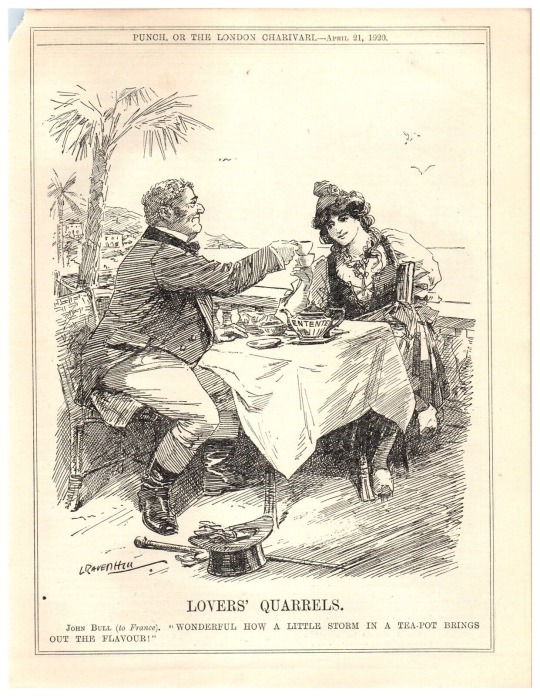
#fruk#aph france#aph fruk#aph england#hws fruk#hws france#hws england#ukfr#aph ukfr#hws ukfr#aph america#hws america
39 notes
·
View notes
Text
A hilarious/ironic story idea for Rafal would be his going through one of those classic, boy-adventure book plots—like that of the protagonist from My Father's Dragon, Charlie Bucket from Charlie and the Chocolate Factory, Milo from The Phantom Tollbooth, or Alice in Wonderland. Except, child-aged Rafal would be a complete, miserable sourpuss the entire time he's confronted by whimsy and colors and wonder, and would dismantle everything that requires childish belief to happen on account of how it should run on the grounds of grown-up logic, not claptrap dream-logic and balderdash. Because, he wouldn't just accept everything he's presented with. Indeed, the beings of the new land would go into cataleptic shock at his poking holes into the “rules” they tell him about.
Then, he would "win" or "save" the kingdom by defeating the Great Evil Force by breaking down or draining the whole, parallel portal world of the magic that keeps such wars going or such kings in power. And when he returns home—just in time for supper, of course—that world would be rendered grey and dull and vulnerable, and he'd be poring over his children's illustrated edition of Encyclopædia Britannica, looking up the definition of "imperialism" and idk, Alexander the Great, and nagging his poor mother to buy him a war helmet with a hinged visor instead of a gas mask.
#school for good and evil#rise of the school for good and evil#rafal#rafal mistral#sge#sfgae#the school for good and evil#tsfgae#rotsge#rotsfgae#my post#my headcanons#children#storybooks
11 notes
·
View notes
Photo
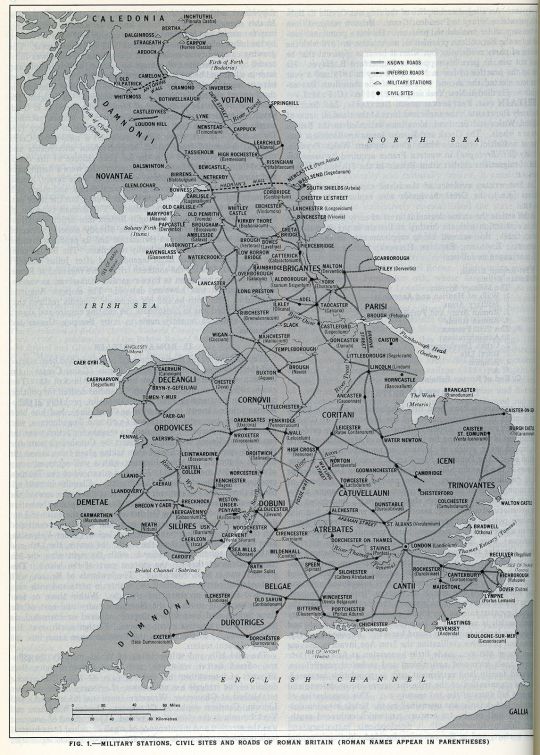
Map of Roman Britain taken from Encyclopædia Britannica's 14th edition.
137 notes
·
View notes
Text
I think we (Queer Christians) should bring back the Feast of Fools! Here's my pitch:
Medieval Christians celebrated the days following Christmas with societal inversion. If God became a vulnerable child born into poverty, then the best celebration should invert the social order: master and servant, clergy and laity, man and woman. The Feast of Fools–held on January 1st–was the most notable celebration of cosmic inversion. Developed in the late 12th and early 13th centuries, the tradition of the feasts continued until the 16th century. (1)
The festival is popularly misunderstood as a celebration of sacrilege, a result of its apparent burlesque of religion. Yet, the festival’s role reversals were prescribed by clergy, and the "fools" represented those chosen by God for their lowly status. From surviving 13th century manuscripts–notably, the Play of Daniel from Beauvais Cathedral and the Office of Joseph from Laon Cathedral–it is clear that some Catholic Churches in France sanctioned cross-dressing for liturgical purposes. (2) In fact, the Feast of Fools is remarkable for being sanctified rather than sacrilegious.
Many anthropologists of religion have argued that “sacred play,” or “ludic ritual,” is central to how religious behaviors function. (3) Although play may seem counterintuitive to religion, absurdity and holiness often go together, especially considering the role reversals and revelry of the Feast of Fools.
Literary critic Mikhail Bakhtin made a similar argument about the “carnivalesque.” (4) When absurdity is celebrated in religion–when a society’s usual rules are suspended–observant revelers can stretch the boundaries of their identities or reverse their social roles. Men become women; laity become clergy; God becomes a helpless infant; death becomes life. It is on the strength of the absurd that religions delve into hope and new ways of becoming. (5) “Sacred play” is reality altering work, a cornerstone of religious enlightenment and religious embodiment.
In 1969, theologian Harvey Cox proposed that an imitation of the medieval Feast of Fools could rejuvenate modern Christian spirituality, lamenting that the tradition has forgotten sacred play. (6)
As found in the Medieval Feast of Fools, the joy of inversion and freedom of death were, at one point, celebrated in Christian tradition through cross-dressing. Drag exists in Christian tradition as an artform that is capable of embodying the Divine. Sharing in Christ’s martyrdom is only part of Christian embodiment, and redemption and resurrection are essential to any imitation of Christ. Through embodying Christ, religious drag can become a project of resurrection.
(Taken from my Master's Thesis in Art History, "Crucifixion Can Happen To Anyone: Embodying Christ Through The Queer Artist")
1: “Feast of Fools.” n.d. Encyclopædia Britannica.
2: Harris, Max. 2011. Sacred Folly: A New History of the Feast of Fools. Cornell University Press. 113-127.
3: Turner, Victor. “Liminal to Liminoid, in Play, Flow, and Ritual: An Essay in Comparative Symbology.” Revista Mediações, vol. 17, no. 2 (2012): 214–57.
4: “Carnivalesque.” n.d. Oxford Reference. Accessed 12 July 2023.
5: Kierkegaard, Søren. “Fear and Trembling.” From Selections from the Writings of Kierkegaard. University of Texas, Austin, Texas, 1912.
6: Cox, Harvey. 1969. The Feast of Fools; a Theological Essay on Festivity and Fantasy. Harvard University Press
50 notes
·
View notes
Text

#sapeviche
Festa della Mamma, origini :“Festa derivata dal culto della dea madre, diffuso nell’antica Grecia. Nelle idi di marzo, in tutta l’Asia Minore, si celebrava formalmente il culto della dea Madre, con cerimonie in onore di Cibele, o Rea, la grande Madre degli dèi”. — (Encyclopædia Britannica (1959), Volume 15, pagina 849.)
Della Festa della Mamma non vi è menzione nella Bibbia, ne esiste testimonianza che i primi cristiani la osservassero.
23 notes
·
View notes
Text



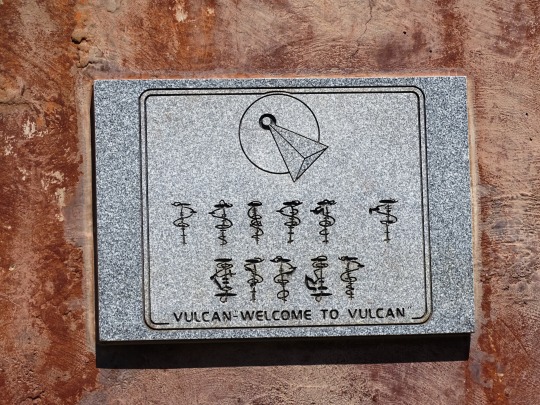






Vulcan, AB (No. 1)
Vulcan is a town in southern Alberta, Canada that is surrounded by Vulcan County. It is on Highway 23, midway between the cities of Calgary and Lethbridge. The population of the town was 1,769 in 2021. Now known as the "Official Star Trek Capital of Canada", Vulcan has a tourism building made to look like a landed space station, a statue of the original series Enterprise, and other Star Trek themed attractions.
Vulcan was named by a surveyor for the Canadian Pacific Railway after the Roman God of Fire – Vulcan. Originally, all the streets of Vulcan were named after gods and goddesses of the classical world such as Juno, Mars, and Jupiter.
The community was incorporated as a village on December 23, 1912, and then as a town on June 15, 1921. In July 1927, a major tornado destroyed many homes and the new curling rink in the town. That tornado was made famous when a photograph of it approaching Vulcan was used for the "tornado" article in Encyclopædia Britannica.
Source: Wikipedia
#Vulcan Tourism & Trek Centre#Vulcan Starship Monument#FX6-1995-A#Vulcan#Alberta#Canada#summer 2024#travel#original photography#vacation#tourist attraction#landmark#cityscape#architecture#Star Trek#roadside attraction#sign#Starship Enterprise
11 notes
·
View notes
Text
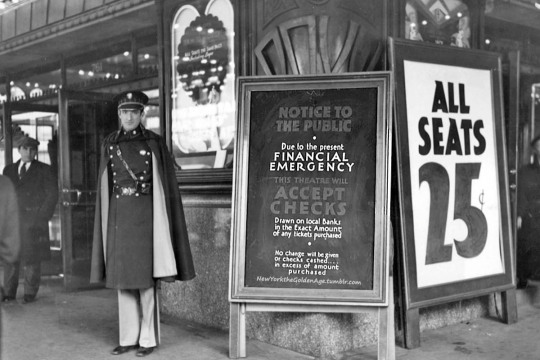
A sign in front of a movie theater in March of 1933 says that, in view of the "national emergency," checks issued by local banks will be accepted for payment.
Photo: Encyclopædia Britannica via El Mundo
#vintage New York#1930s#Great Depression#vintage movies#movie admission#movie usher#old movie theater#vintage movie theater
31 notes
·
View notes
Text


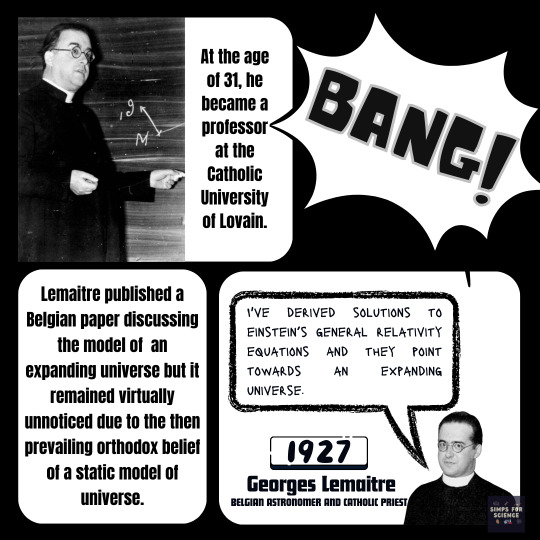
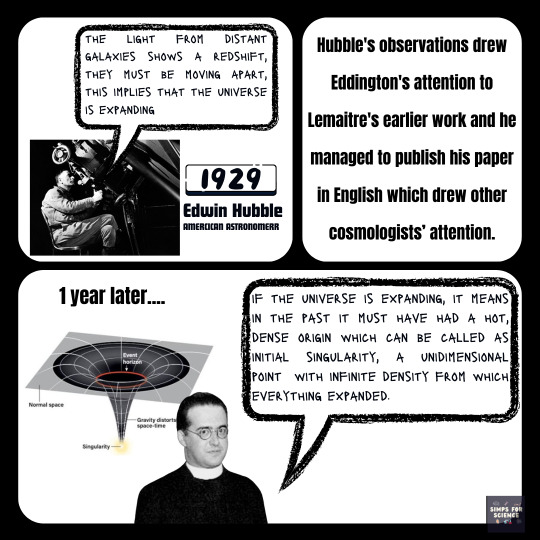

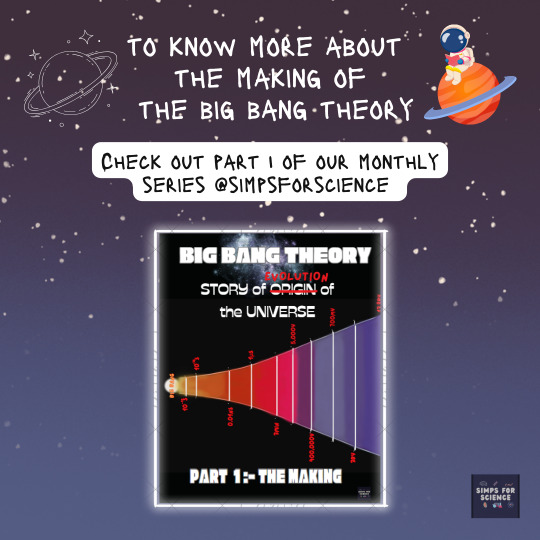
Georges Lemaître navigated a challenging journey🧗🏻♀️ in birthing and establishing the Big Bang theory. Read on this post to discover how strewn his path was and the skepticism and resistance🤨 that he had to face to put forth his work. Join us on our monthly series - Big Bang Theory and cater to your curiosity about our cosmos🌌.
📸Image credits:
Image 1: Georges Lemaitre by Betmann
Image 2: Young Lemaitre by Jean-Pierre Luminet, e-luminesciences blog
Image 3: Arthur Edington by George Grantham Bain Collection, Wikimedia
Image 4: Georges Lemaitre teaching by Encyclopædia Britannica
Image 5: Edwin Hubble by Margaret Bourke - White/Time & Life Pictures/ Getty Images
Image 6: Singularity by Rone Kelly, Astronomy
Image 7: Pope pius xii by Michael Pitcairn
#education#science#science facts#study blog#research scientist#astrophysics#astronomy#cosmology#cosmos#big bang#physicist#physics#space#galaxy#quantum physics#hubble#discover#scicomm#comics#general relativity#albert einstein#nasa
33 notes
·
View notes